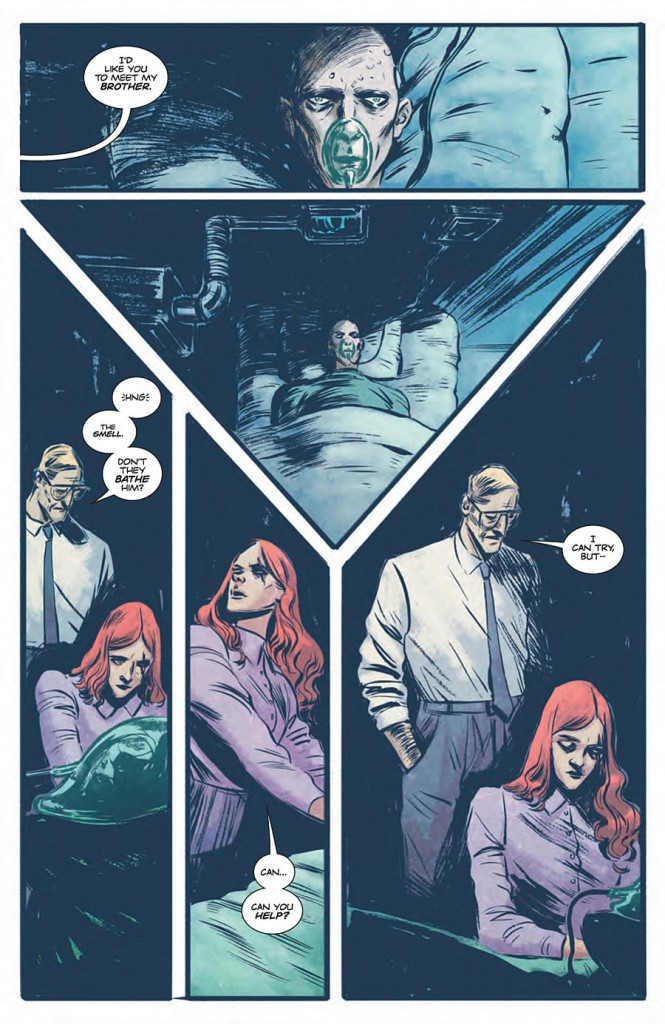Empty Man #2
Written by Cullen Bunn
Art by Vanessa R. Del Rey
Published by IDW
This issue continues to explore the mystery behind the phenomenon known as the Empty Man. Empty Man as a series has yet to come together, and the internal logic that governs this story seems odd at or even absent at times. The series really needs a hook apart from the disturbing content, which is only going to hook readers for so long.
Five years before, the reverend from the TV show is visiting a nursing facility. The scarred woman is showing him a man in a bed, and when the reverend touches him, his eyes fill with images of worms. In the present, Langford reviews a series of Empty Man victims before returning to the present, with the spider monster attacking the witness. After a long battle, it finally kills the witness and escapes. Owen Marsh, a virologist with the CDC, goes to visit survivors of the Empty Man, while Langford and Jensen resume their search for the missing children.
 The battle with the spider-thing makes no sense. It kills the witness with little effort, but it’s willing to play-fight with Jensen for several pages. Why do none of the agents in that room have firearms, and if they do have them, why aren’t they using them? Langford’s whole narration and recounting of the victims is presumably taking place simultaneously, as he refers to the attack in the present tense. Who thinks like that when confronted with a giant spider monster? Doesn’t he have something better to think about?
The battle with the spider-thing makes no sense. It kills the witness with little effort, but it’s willing to play-fight with Jensen for several pages. Why do none of the agents in that room have firearms, and if they do have them, why aren’t they using them? Langford’s whole narration and recounting of the victims is presumably taking place simultaneously, as he refers to the attack in the present tense. Who thinks like that when confronted with a giant spider monster? Doesn’t he have something better to think about?
Also, the more the characters discuss these cultists sort of worshipping Empty Man, the more ridiculous it feels. History is full of examples of disease and plagues producing all sorts of religious orders. But the Flagellants during the Black Death whipped themselves to get rid of the plague, not to get deliberately expose themselves to it. People might blame others, and they might blame themselves, but they’re not going to start worshipping the disease. It feels all the sillier because this is a plague that causes its sufferers to go mad and usually kill themselves or someone else in horrifically violent ways. The idea that somebody would see it as anything other than a punishment frankly feels silly.
Also, Jensen’s character still feels sort of under-developed. Langford is bitter and wry about what they’re doing, perceiving a certain futility in their actions. Jensen doesn’t have any of that nuance and is just a cop who always seems to be pissed off at Langford. Parts of this series work well, as the author is teasing us with the possibility that either Jensen or Langford may be sick. That piece works well for building tension, but it fizzles against the otherwise confusing action. Overall, this wasn’t a particularly interesting issue.





